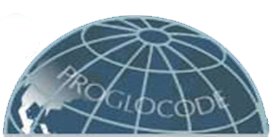Timothy J. Sturgeon
(Massachusetts Institute of Technology)
The world economy has changed in very significant ways during the past several decades, especially in the areas of international trade and industrial organization. Two of the most important new features of the contemporary economy are the globalization of production and trade, which have fueled the growth of industrial capabilities in a wide range of developing countries, and the vertical disintegration of multinational corporations, which are redefining their core competencies around innovation and design, marketing, services, and the highest value-added segments of manufacturing. Together, these two shifts have laid the groundwork for a variety of network forms of governance in modern industries, which are situated between arm’s length markets, on the one hand, and large vertically integrated corporations on the other. These transformations affect not only the strategies of firms and the structure of industries, but also how and why countries advance—or fail to advance—in the global economy. The purpose of this presentation is to characterize the main patterns of global value chain governance and discuss the implications of various governance forms for the development and implementation of state policies aimed at industrial upgrading and economic development.
Tim Sturgeon is a Senior Research Affiliate at the Industrial Performance Center (IPC) at the Massachusetts Institute of Technology (MIT), where studies a variety of global industries. He is also a Research Fellow at the Institute for Technology, Enterprise, and Competitiveness at the Doshisha Management School in Kyoto, Japan. Prior to these activities, Tim served as Executive Director of the IPC’s Globalization Study (http://globalization.mit.edu); Globalization Research Director for the International Motor Vehicle Program at the Center for Technology, Policy and Industrial Development; and Director of the MIT/Carnegie Mellon Project on Globalization and Jobs in the Automotive Industry. Tim came to MIT from the University of California at Berkeley, where he was a Research Specialist at the Berkeley Roundtable on the International Economy while earning his Ph.D. in Economic Geography.
Archivos adjuntos:


